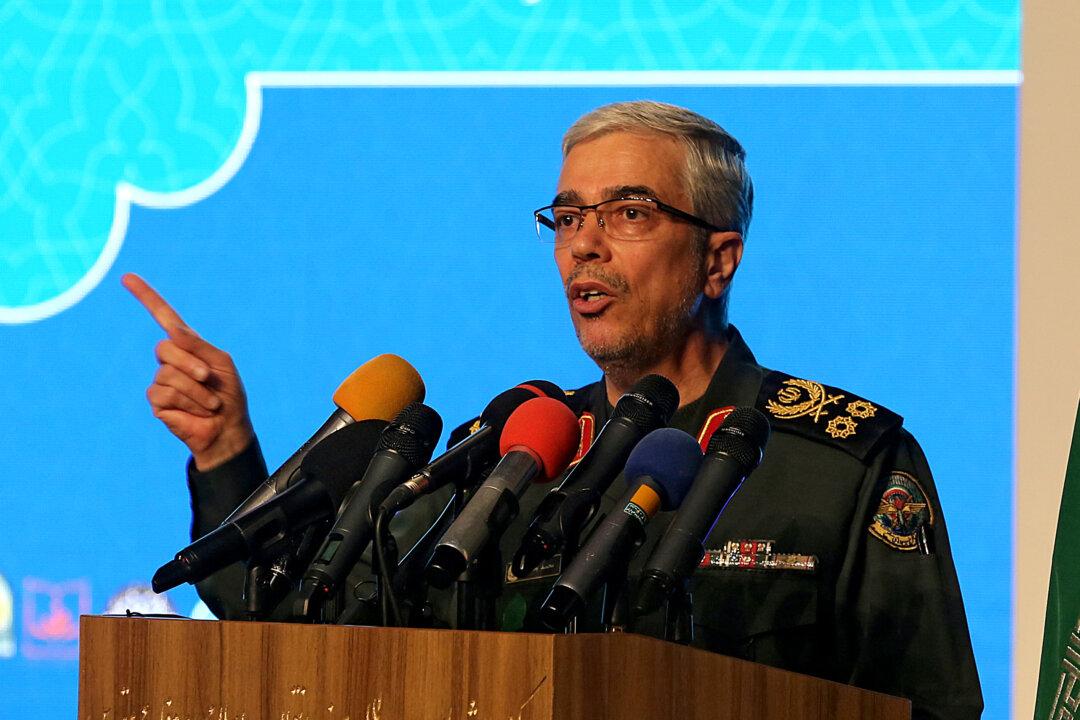Iran on Sunday warned Israel and the United States that it would carry out a larger attack if either country retaliates against Tehran’s overnight missile and drone attack, saying that U.S. military bases could be in its crosshairs.
Iran launched explosive drones and shot missiles at Israel late on Saturday in what has been described as its first direct attack on Israel. The Islamic regime has said that the attack was warranted after Israel’s bombing a Syrian compound in early April that left seven members of its Revolutionary Guard Corps dead.





